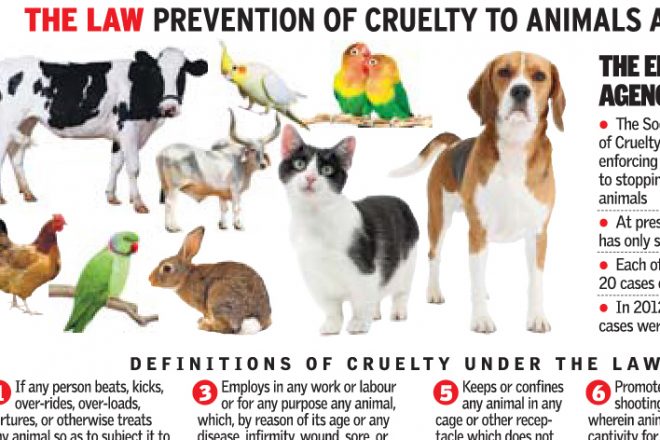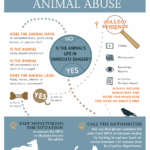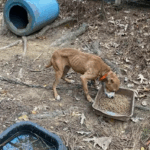Animal cruelty manifests in various forms, each insidious in its own right, enveloping our understanding of compassion and ethical responsibility towards the creatures we share our world with. While many are aware of overt acts of violence against animals, the spectrum of cruelty extends far beyond immediate physical abuse. It encapsulates neglect, exploitation, and systemic practices that may not always be readily apparent. Delving deeper into this troubling phenomenon reveals not only the types of cruelty but also the societal mechanisms that permit such behaviors to perpetuate.
The most straightforward form of animal cruelty is physical abuse. This can involve acts of violence such as beating, poisoning, or otherwise inflicting pain. Such behavior might stem from an individual’s psychological issues, as there is often a correlation between violent tendencies towards animals and a history of violence towards humans. This alarming behavioral overlap indicates a troubling mindset, suggesting that the abuse of animals serves as an erroneously perceived outlet for power and control.
Moreover, neglect constitutes another significant category of animal cruelty. It is not always accompanied by visible signs of violence. Indeed, neglect can be just as damaging, if not more so, than active maltreatment. In these scenarios, animals may be deprived of basic needs such as food, water, shelter, and adequate veterinary care. This form of cruelty is often associated with hoarding situations where individuals collect animals, believing they are saving them. However, the overwhelmed caretaker frequently lacks the resources or knowledge to provide for the animals adequately, leading to a deplorable living situation, disease, and starvation.
Another insidious form of cruelty is that which occurs within the realm of factory farming. Many consumers may unwittingly support these practices through their dietary choices. Animals raised in factory farms endure horrendous conditions, characterized by overcrowding, confinement in cages, and inhumane treatment. They often live in filth, with little to no opportunity for natural behaviors. The commodification of animal life here highlights a chilling disconnect; animals are viewed not as living beings deserving of compassion, but as production units. This exploitative mindset betrays the fundamental ethical principles that should guide our interactions with animals.
It is critical to also address the distressing phenomenon of animal testing. Utilized primarily in scientific and product safety research, animal testing often subjects animals to invasive procedures, confinement, and sometimes lethal outcomes. While proponents argue for the necessity of such practices in the advancement of human health, it is essential to consider the moral implications. The toll taken on sentient beings often raises questions about the cost of human validation and advancement. The usage of alternative methods, such as in vitro testing and computer modeling, offers a compassionate pathway, yet the reliance on animal testing persists due in part to regulatory inertia and a lack of public awareness.
Furthermore, the entertainment industry bears its share of responsibility for animal cruelty. From circuses to marine parks, animals are frequently subjected to cruel training methods, confinement, and exploitation for human amusement. The clamor of applause often drowns out the suffering endured behind the scenes. Such exploitation is more than an ethical quandary; it is a troubling reflection of societal desensitization to suffering, suggesting that entertainment should never come at the expense of another’s well-being.
Another critical aspect of cruelty worth noting is its intersection with wildlife. Habitat destruction, poaching, and the illegal wildlife trade are direct contributors to the suffering and endangerment of countless species. Animals are not merely casualties of environmental changes but often become victims of human greed. The exotic pet trade exemplifies society’s unsettling fascination with possessing wildlife, leading to cruel conditions for these animals. Captivity and the subsequent emotional trauma inflicted upon them are rarely acknowledged in mainstream discourse, further perpetuating a cycle of suffering.
Moreover, the cultural practices in some societies can involve cruelty toward animals under the guise of tradition. Festivals that involve animal sacrifices or blood sports reflect deep-seated attitudes towards animals that human beings often fail to interrogate critically. While cultural relativism compels respect for different traditions, it is equally vital to advocate for animals’ rights, opening dialogues about humane practices that honor both cultural heritage and animal welfare.
Finally, neglect can take on a more institutional form, as seen in legislative and systemic failures to protect animals. Animal hoarding laws, anti-cruelty legislation, and enforcement mechanisms can be insufficient or inconsistently applied, allowing cruelty to continue unchecked. Public awareness and advocacy are crucial to galvanizing change and fortifying legal protections for animals, ensuring accountability and integrity within societal structures.
The myriad forms of animal cruelty form a complex tapestry that entangles ethical considerations with societal norms, individual behaviors, and systemic structures. Each type of cruelty, whether overt or insidious, serves as a reminder that vigilance and compassion must prevail in our relationships with animals. It is imperative that society collectively demands changes in attitudes, embraces ethical treatment, and ensures robust protections for all sentient beings. Through education, advocacy, and thoughtful engagement, we can dismantle these cruel practices and foster a culture of compassion and respect. Animals, after all, are more than mere subjects; they are fellow inhabitants of our shared world, deserving of at least the same level of care and respect we afford ourselves.








